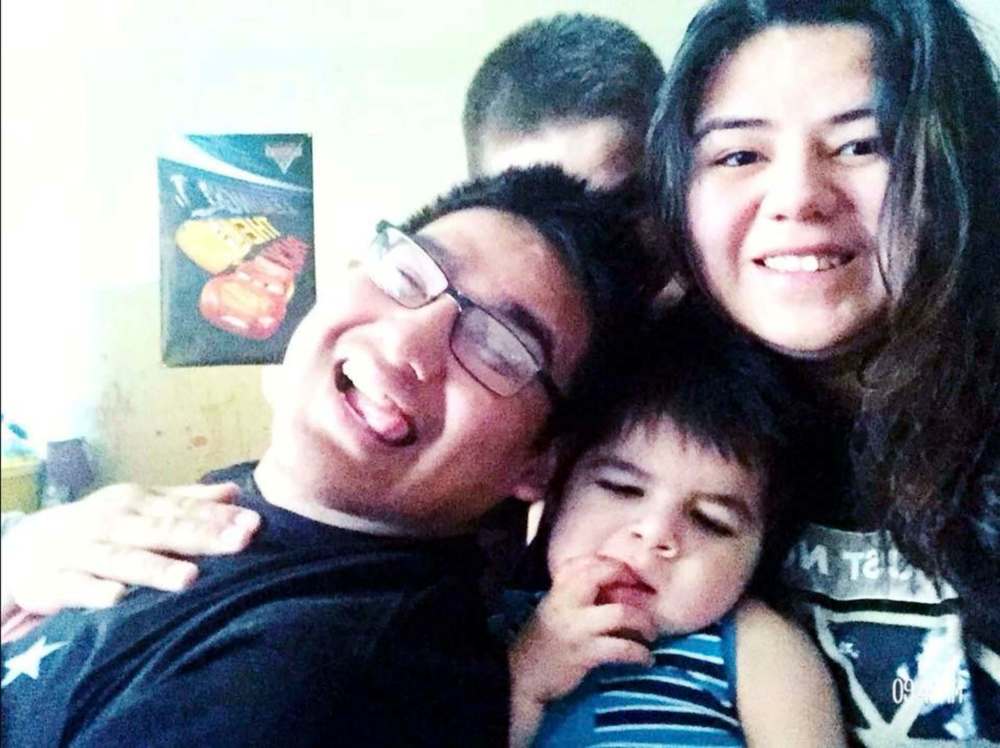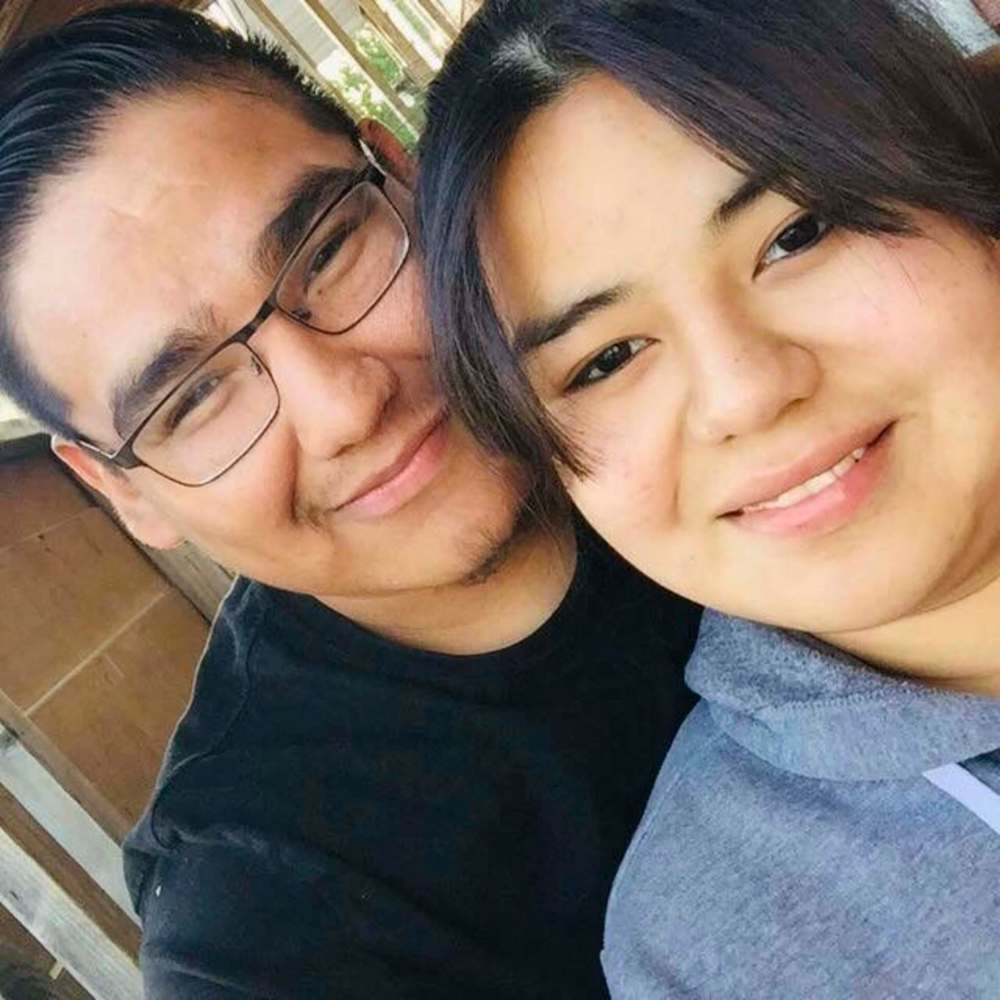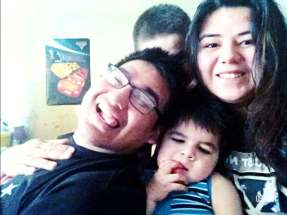First Nation demands justice in boy’s death Child had been seriously abused, sources say, as community members question CFS involvement, RCMP investigation
Read this article for free:
or
Already have an account? Log in here »
To continue reading, please subscribe:
Monthly Digital Subscription
$1 per week for 24 weeks*
- Enjoy unlimited reading on winnipegfreepress.com
- Read the E-Edition, our digital replica newspaper
- Access News Break, our award-winning app
- Play interactive puzzles
*Billed as $4 plus GST every four weeks. Offer only available to new and qualified returning subscribers. Cancel any time.
Read unlimited articles for free today:
or
Already have an account? Log in here »
Hey there, time traveller!
This article was published 23/03/2021 (1410 days ago), so information in it may no longer be current.
When an unresponsive three-year-old was taken to the Little Grand Rapids nursing station on Aug. 23, 2018, his tiny body bore signs of abuse, including broken bones and cigarette burns, four community members told the Free Press.
That day, the boy, identified as Abel Joseph Leveque Flett, who couldn’t walk and suffered from seizures due to a congenital handicap, was declared dead.
Now, more than two and a half years later, members of the remote First Nations community are angry, citing a lack of accountability from the child-welfare system, and a lengthy RCMP investigation that led to criminal charges far less serious than what many expected.
“The child had broken bones and lots of trauma. The nurses at the station had to get a trauma team to come in and speak with them. I think some of them are still not over it, the condition that little boy was in,” said Nelson Keeper, an advisor to Little Grand Rapids’ chief and council.
When the RCMP first announced the boy’s death in August 2018, it was high-profile news in Manitoba, prompting a public statement from then-families minister Heather Stefanson that Child and Family Services had not been involved in the case.

A week later, the RCMP issued an update, saying its major crimes unit was investigating the boy’s death as a homicide. But soon the case fell off the public radar, leaving the community in the dark and wondering what — if anything — would be done to provide justice for the boy.
On Monday, police announced the arrests of Alayna Flett, 21, and Houston Bushie, 24, who were serving as the temporary guardians of the toddler and his three elder siblings in the months leading up to his death.
The couple has been charged with failure to provide the necessaries of life and were released on a promise to appear in court next month. The allegations against them have not been proven in court.
A background search on Bushie shows he has a lengthy criminal record, with four convictions for assault and one conviction for possessing weapons contrary to a court order, in the years leading up to the child’s death.
That criminal record, alongside Bushie and Flett’s young age — they were 18 and 21, respectively, in 2018 — raise serious questions about how four small children, one of whom had special needs, ended up being placed in their home.
The Free Press requested comment Monday from the provincial government about potential CFS involvement in the case. On Tuesday, a provincial spokeswoman responded with a written statement.
“We are unable to confirm CFS involvement due to confidentiality provisions in our legislation. However, generally speaking, families can make private arrangements for care of their children without CFS knowledge or involvement,” the spokeswoman said.
“CFS agencies may provide letters to confirm living arrangements of children so that government financial assistance… is directed to the appropriate caregiver. These letters do not indicate or require oversight of a child’s placement with family — it only indicates that a separate body has knowledge about the living arrangements for a child.”
Repeated attempts to speak with representatives from the Southeast Child and Family Services about the case have been ignored.

But several community members were adamant CFS was involved in the boy’s case.
One source, who has worked as health director in Little Grand Rapids, told the Free Press he had contact with CFS on multiple occasions about the boy, including the week he died.
The boy was brought to the community nursing station and declared dead on Aug. 23, 2018, which was a Thursday. On Monday and Tuesday of that week, the source said he sent health authority staff to the home of the accused to check on the child. Each time staff went to the home, no one answered the door.
“I told the (CFS worker) my staff has been trying to go to that household and we know somebody is in there… but nobody is answering the door. I told her, ‘We need to get this kid, because the physiotherapist needs to see (him),’” he said.
“So I went to go meet with the case manager at the nursing station and that’s when the child was brought in. One of the nurses came in and she said, ‘Oh, they brought in that little boy you were looking for.’ She was obviously upset. She looked very shocked. She said the boy was deceased.”
The child was brought into the nursing station wrapped in a towel or blanket, the source said, adding the boy had cigarette burns and broken bones, and his head showed signs of trauma and felt soft to the touch.
Community members have questioned why there weren’t immediate arrests in the case.
On Tuesday, an RCMP spokesman said in a written statement that the major crimes unit conducted a “thorough investigation” and there were “many facets of this investigation that required additional time to complete.”
“Medical experts were consulted with regards to the injuries sustained by the victim. These medical opinions are crucial in determining the appropriate charges to be laid,” the spokesman said.
“As in all investigations, once the investigative tasks are completed, it is then put forward to the justice department for review. At times, this may mean the RCMP will be asked to complete further investigative steps, identified by the Crown, prior to the opinion being returned.”
But one source, who currently serves in band leadership, pushed back against the idea there was insufficient evidence to lay stronger charges in the case.
“The law is saying there is not enough evidence. That little boy didn’t go around breaking his own fingers and putting little cigarette burns on his body. I don’t know. I don’t know what they want for evidence,” the source said.
“And that little three-year-old boy cannot speak on his own behalf and say that we’ve all failed him.”
ryan.thorpe@freepress.mb.ca
Twitter: @rk_thorpe

Ryan Thorpe
Reporter
Ryan Thorpe likes the pace of daily news, the feeling of a broadsheet in his hands and the stress of never-ending deadlines hanging over his head.
Our newsroom depends on a growing audience of readers to power our journalism. If you are not a paid reader, please consider becoming a subscriber.
Our newsroom depends on its audience of readers to power our journalism. Thank you for your support.
History
Updated on Wednesday, March 24, 2021 8:16 AM CDT: Minor copy editing changes
Updated on Wednesday, March 24, 2021 11:15 AM CDT: Replaces background image











